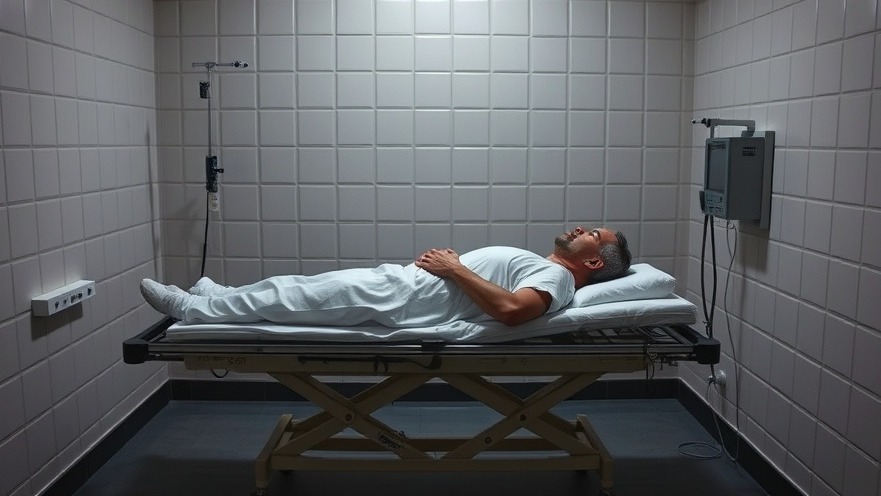
Understanding the Execution of Blaine Milam
On a somber evening in Huntsville, Texas, Blaine Milam was executed for the horrific 2008 murder of 13-month-old Amora Bain Carson. His death echoes the tragic fate of a young life lost—one that has haunted the Rusk County community for over a decade. The crime, characterized by its gruesome details and the context of an alleged exorcism, raises profound questions about justice, mental health, and societal responsibilities.
What Led to Milam's Conviction?
The details surrounding the murder are disturbing. On December 2, 2008, Milam and Amora's mother, Jesseca Bain Carson, reported the child’s death. Authorities found the 23-pound toddler showing severe signs of abuse, including multiple human bite marks and several fractures indicative of prolonged physical torment. Reports indicated that Carson had been present during the 'exorcism,' a term that has become synonymous with horror in this case, leading to her own conviction in 2011, where she received a life sentence.
The Legal Battle and Claims of Innocence
Milam's path to execution was paved with legal challenges centered around his intellectual capacity—a pivotal issue given that the U.S. Supreme Court has ruled against executing individuals deemed intellectually disabled. His defense team argued that IQ scores of 68 and 71 indicated significant cognitive impairments. Despite these claims, multiple court rulings concluded otherwise, ultimately leading to the upheld death sentence.
The Impact of Mental Health on Justice
This case shines a light on the intersection of mental health and the criminal justice system. Critics argue that the legal system often fails to adequately address the complexities of mental health issues, which can lead to miscarriages of justice. In places like Austin, community discussions are increasingly driven by the need to reform how courts approach individuals who may not fully understand the implications of their actions due to mental illness or disability. The conversation is critical as communities grapple with crime prevention, victim rights, and the reintegration of offenders.
Comparative Perspectives on Capital Punishment
As Texas continues to lead the nation in executions, Milam's case raises essential questions about the efficacy and morality of capital punishment. With the state executing five inmates this year alone, discussions about the death penalty often revolve around its deterrent effects and ethical implications. How does society balance justice for heinous acts against the potential for wrongful convictions? Thought leaders in Austin are increasingly advocating for re-evaluating such penalties, seeking alternatives designed to rehabilitate rather than punish.
The Community's Reaction and Future Implications
The reaction in Rusk County and the broader Texas community has been mixed. For some, justice was finally served, while others view the execution as a tragic end that fails to address deeper societal issues, such as child abuse and mental health care access. Moving forward, communities in Texas, including those in Austin, must reflect on their values and how they approach crime, punishment, and the welfare of children. The conversation about reform in these areas is not just necessary; it's vital to prevent more tragedies in the future.
Your Role in Shaping Community Safety
It’s essential to remain informed and engaged with local issues surrounding crime and mental health. Advocating for improved mental health services, participating in community discussions, and contributing to policymaking can help shape a safer and more just society. Now more than ever, each citizen's involvement plays a crucial role in tackling these challenging issues.
In light of the complexities revealed in Milam's case, we encourage Austin residents to explore local initiatives and support measures aimed at fostering mental health awareness and victim protection in the community. The implications of this case extend beyond one man's execution; it echoes the need for engagement and reform throughout the state.
 Add Element
Add Element  Add Row
Add Row 



Write A Comment